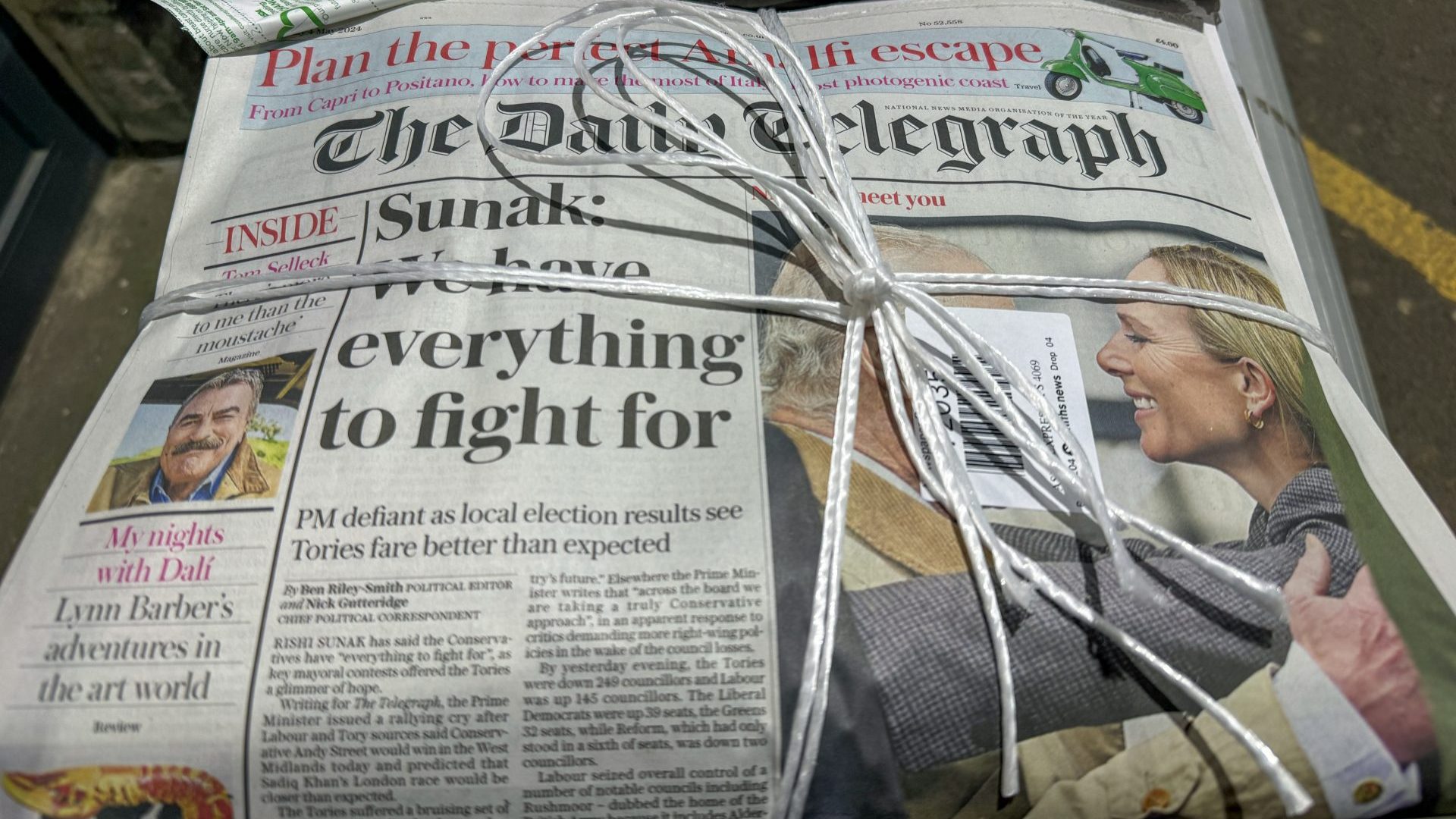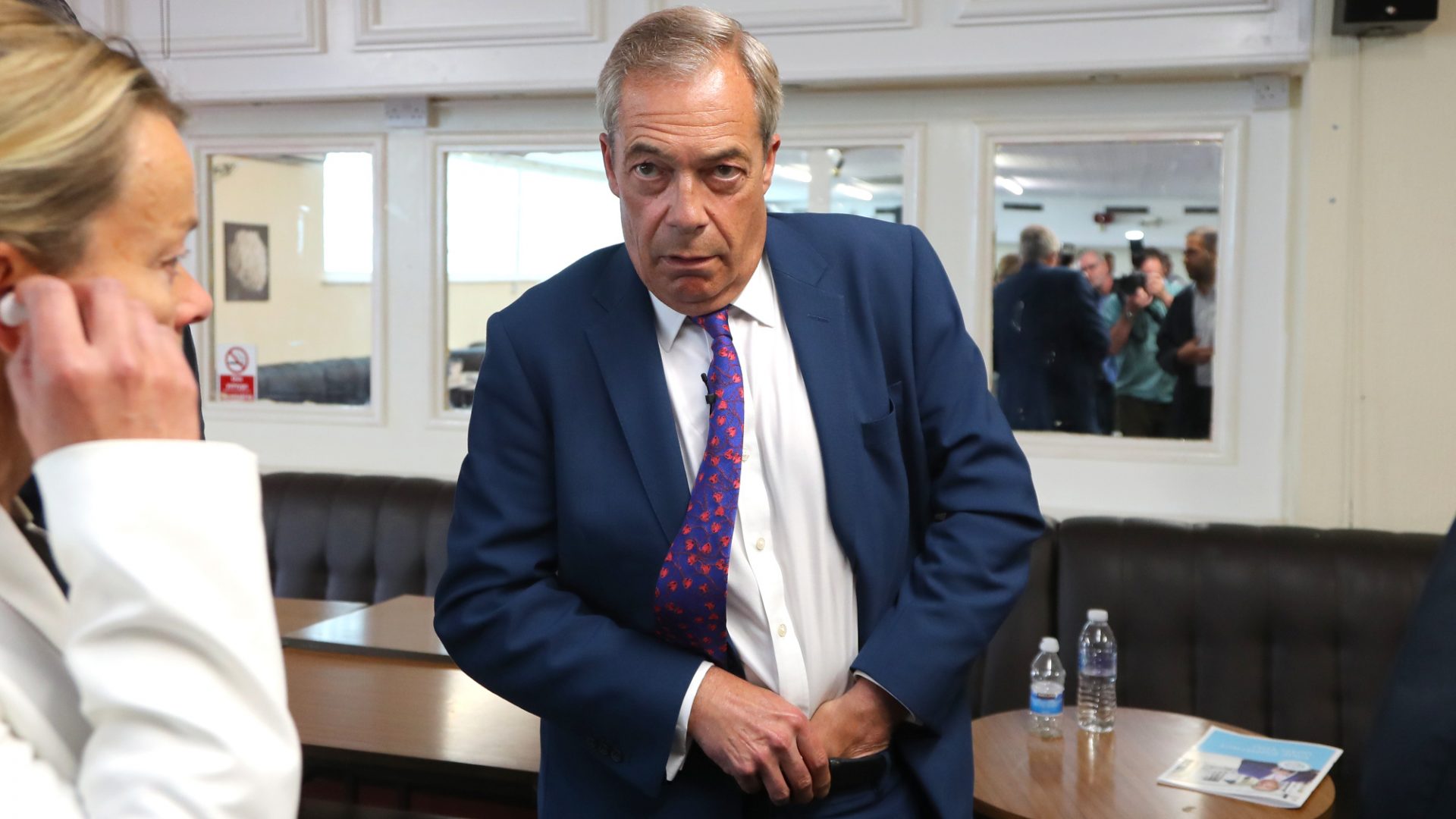With the former Daily Mail grandee Paul Zwillenberg stepping down as his full-time adviser on taking control of the Daily Telegraph, Sir Paul Marshall’s hopes of acquiring the newspaper are looking increasingly forlorn.
“Marshall had been working on the assumption of an autumn general election, affording him enough time to get the deal signed and sealed before Labour got in, but obviously that’s now out of the window and may well explain Zwillenberg’s decision to head off to Accenture,” says my source close to the bidding process.
“Given his stewardship of GB News, Marshall’s chances of passing the ‘fit and proper person test’ to own a national newspaper look a lot more doubtful under a Labour government.”
The Tory culture secretary, Lucy Frazer, had been planning to call in first-round bids for the Telegraph group – which includes the Spectator – in the next few weeks. But a sale ahead of the election looks well nigh impossible given that some of the contenders, notably Rupert Murdoch’s media business and the Daily Mail’s Lord Rothermere – will face regulatory and competition scrutiny.
Labour supported the Tory decision to block the UAE-backed bid for the Telegraph as they didn’t want to see an overseas government with a substantial stake in a British media company. The UAE bid had, however, been popular among journalists on the paper, as their deep pockets would have secured their jobs and given the Telegraph a chance of becoming a big global media brand.
It is not obvious who will take over from Frazer, with the shadow culture secretary, Thangam Debbonaire, facing a struggle to be elected as MP for the new seat of Bristol Central. She is up against Carla Denyer, co-leader of the Greens, whose party did well in the local elections. Denyer is scenting victory after her spirited performances in the TV debates.
Some bidders have, meanwhile, withdrawn, including the German publisher Axel Springer and a consortium led by the former Telegraph editor Will Lewis. He controversially decided instead to take over as publisher and CEO of the Washington Post.
I disclosed last year how Martin Clarke, the creator of MailOnline, has been looking at the titles and is still said to be an interested party, with some rich backers behind him.
Lord Agnew, a former efficiency and transformation minister under Boris Johnson who sits on the board of the GB News holding company, All Perspectives, is now helping Marshall with his Telegraph bid and has set up a company for him called International Media Acquisitions, presumably to pave the way for their putative takeover. Agnew has, incidentally, yet to declare this is the register of Lords’ financial interests.
Jovan Owusu-Nepaul is a formidably bright young man – Goldsmiths and Cambridge – with a passion for public service. He served as chair of the Lewisham Deptford Constituency Labour Party, the first British African/Indo Caribbean to do so in the CLP’s history, and he is now Labour’s parliamentary candidate in Clacton.
His party maintains that the collapse in Tory support has now reached a tipping point and only he can beat Reform’s Nigel Farage. They cite an Electoral Calculus poll showing Farage as the frontrunner, with 39% of the vote, ahead of Labour on 27.6% and the Tories on 25.3%. If taken at face value, this is quite a reversal of fortune for the incumbent Tory MP, Giles Watling, a former actor, who won Clacton in 2019 on a 72.3% vote and a majority of 24,702, with Labour on just 15.5%.
Electoral Calculus is not, however, infallible – localised polling based on national projections is notoriously inaccurate, and the pollster Lord Robert Hayward has warned against relying too much on its polls – and it seems to me it takes quite a leap of faith to see the constituency that was once held by Ukip’s Douglas Carswell switching to Owusu-Nepaul.
The respected CNN journalist Rob Picheta, who has been reporting extensively from Clacton, has his doubts, too, about the Electoral Calculus poll. More polling needs to be done, but, if the objective is to keep Farage out of parliament, this could well be the one seat where a tactical vote for the Tories would be in order.
Arron Banks, the controversial former Ukip donor, has made good on his promise – or threat – at Christmas to join Reform if Nigel Farage leads the party. He also said at the time that he would raise £10m for it.
Reform has raised £1.5m from donors – including Holly Valance – since Farage took over from the businessman Richard Tice, but its resources are paltry compared with the other parties, so Farage will no doubt be reminding Banks of his second pledge.
Almost 10 years on from Brexit, insolvency paperwork from Leave EU shows that Banks pumped some £7m in loans into it from his businesses, and these are expected to be written off in the coming months. In 2019, the National Crime Agency said it had found no evidence of criminality, after allegations were made that Banks was not the true source of the loans.
Farage’s demand that he should be allowed to take part in the televised leaders’ debates on the basis of a YouGov poll that put Reform in second place on 19%, just ahead of the Tories on 18%, now look hubristic. A new poll from Savanta puts his party back in its place – on third with 13%.
Is Question Time biased? Cardiff University’s School of Journalism, Media and Culture has conducted an analysis of all the guests who have appeared on the BBC show, produced by Llanelli-based production company Mentorn, between September 2014 and July 2023.
It found that the programme’s non-politician slot was dominated by right wing journalists, including Isabel Oakeshott and Julia Hartley-Brewer (13 appearances each). Kate Andrews of the Spectator appeared 12 times, the same as her colleague Tim Stanley, who also writes for the Telegraph. Mentorn has featured Camilla Tominey (Telegraph and Spectator) 10 times, with Spectator editor Fraser Nelson – who also has a Telegraph column – appearing seven times.
“This raises questions about how producers choose guests,” says Matt Walsh of Cardiff University. “The lack of counterbalancing narratives from left wing publications is notable.”
The Daily Mail has become strangely muted on the general election. One insider tells me the paper’s editor, Ted Verity, and his editor-in-chief, Paul Dacre, remain as fiercely hostile to Keir Starmer as ever, but its owner, Lord Rothermere – eager to ingratiate himself with the incoming government, not least in relation to his hopes to acquire the Daily Telegraph – wants a more conciliatory approach.
“There’s an unhappy impasse, just as there was over the EU referendum, where Rothermere was telling anyone who’d listen on the party circuit that he was a Remainer, but his paper was for Brexit,” says one Mail insider.




